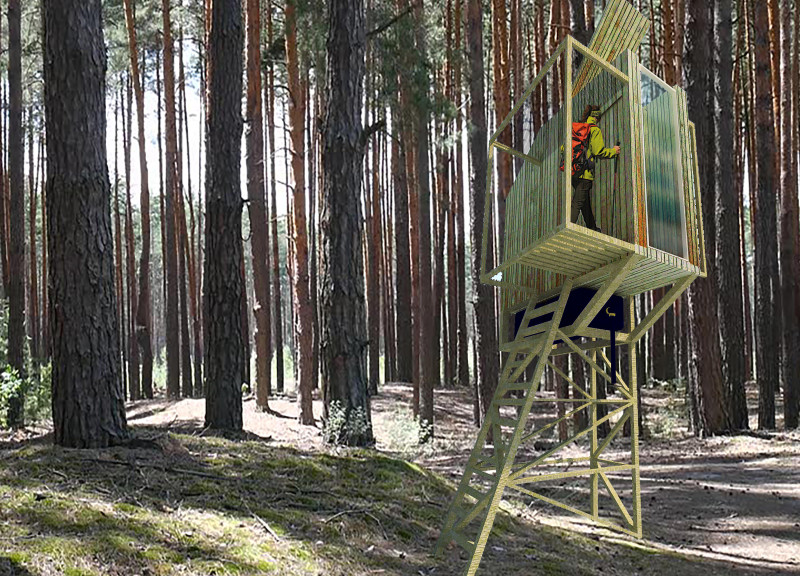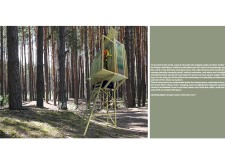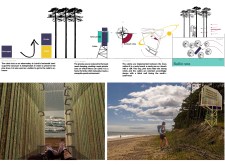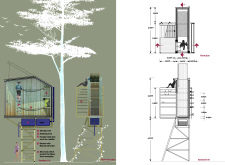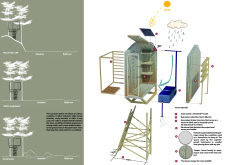5 key facts about this project
### Project Overview
Located along the Amber Road in Latvia, this elevated lodging cabin is designed to accommodate hikers while fostering a connection with the surrounding natural landscape. Its elevated structure provides a sweeping view of Latvia's flat terrain, facilitating a unique observational experience amidst the local pine trees. The design focuses on enhancing user comfort and safety while minimizing environmental impact.
### Elevated Design and Spatial Strategy
The cabin is elevated on stilts, which prevents disruption to the local ecosystem and adds to the overall experience with panoramic views. Access is provided via a ladder that serves both functional and aesthetic purposes, integrating seamlessly into the structure. Internally, the cabin features a carefully planned layout that separates semi-private sleeping areas from communal spaces, promoting interaction among users. Compact sleeping quarters maximize space without compromising comfort, and versatile fishnet hammocks serve as both sleeping accommodations and lounge areas, bridging the indoor and outdoor environments.
### Sustainable Materiality and Features
Sustainability is a core principle of the design, reflected in the choice of materials and integrated systems. Local timber is extensively used for its aesthetic appeal and structural durability, while a secondary timber framework enhances livability by providing support for wildlife habitats and creating a mosquito-proof environment. Photovoltaic panels are installed to harness solar energy for essential power needs, supported by a rainwater collection and filtration system that ensures access to clean water. These features collectively emphasize an eco-friendly approach, ensuring that the cabin operates sustainably and remains in harmony with its natural surroundings.
The design also allows for adaptation across various terrains along the Baltic Sea, contributing to a reduced environmental footprint. The cabin’s spatial organization encourages outdoor communal activities while fostering engagement with the natural environment, positioning it as a hub for awareness and appreciation of Latvia’s ecological heritage.


